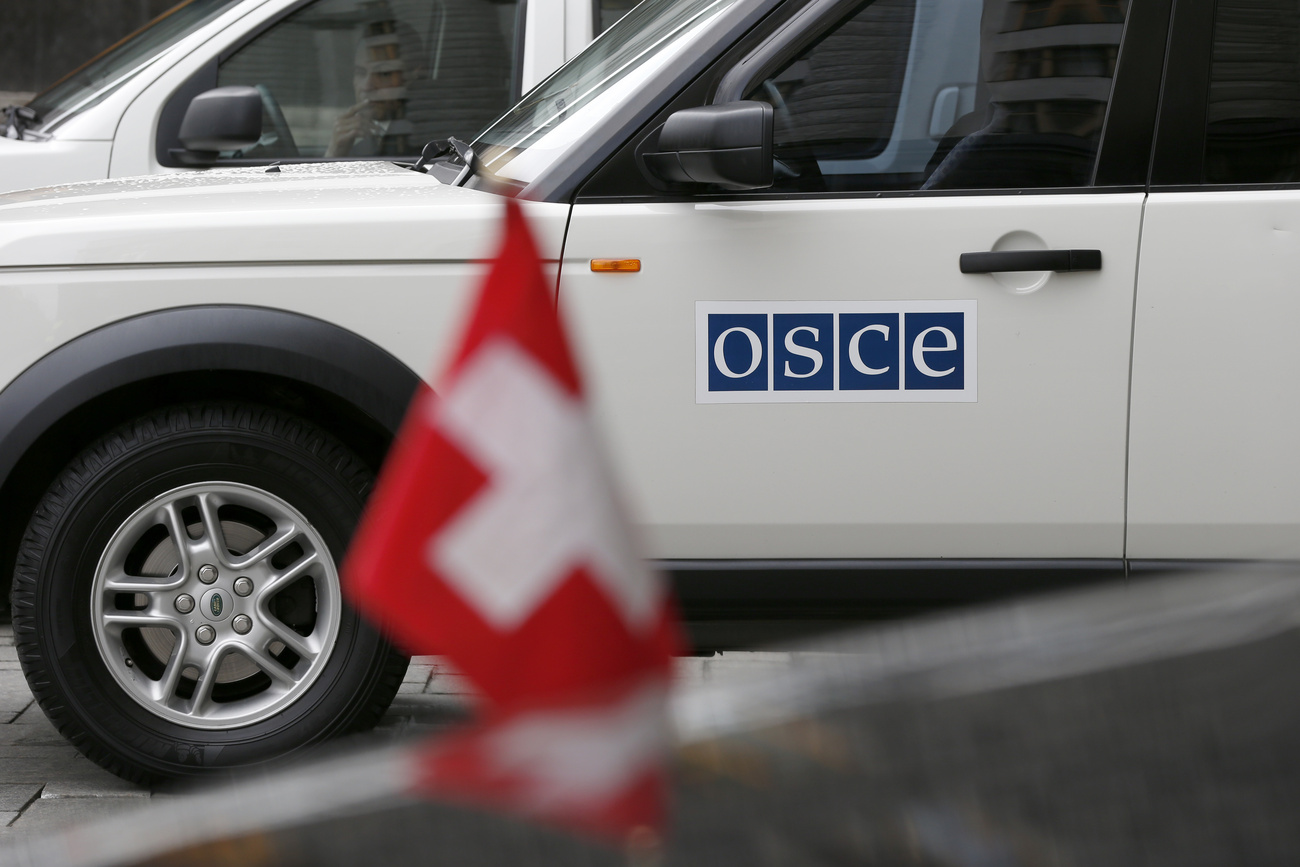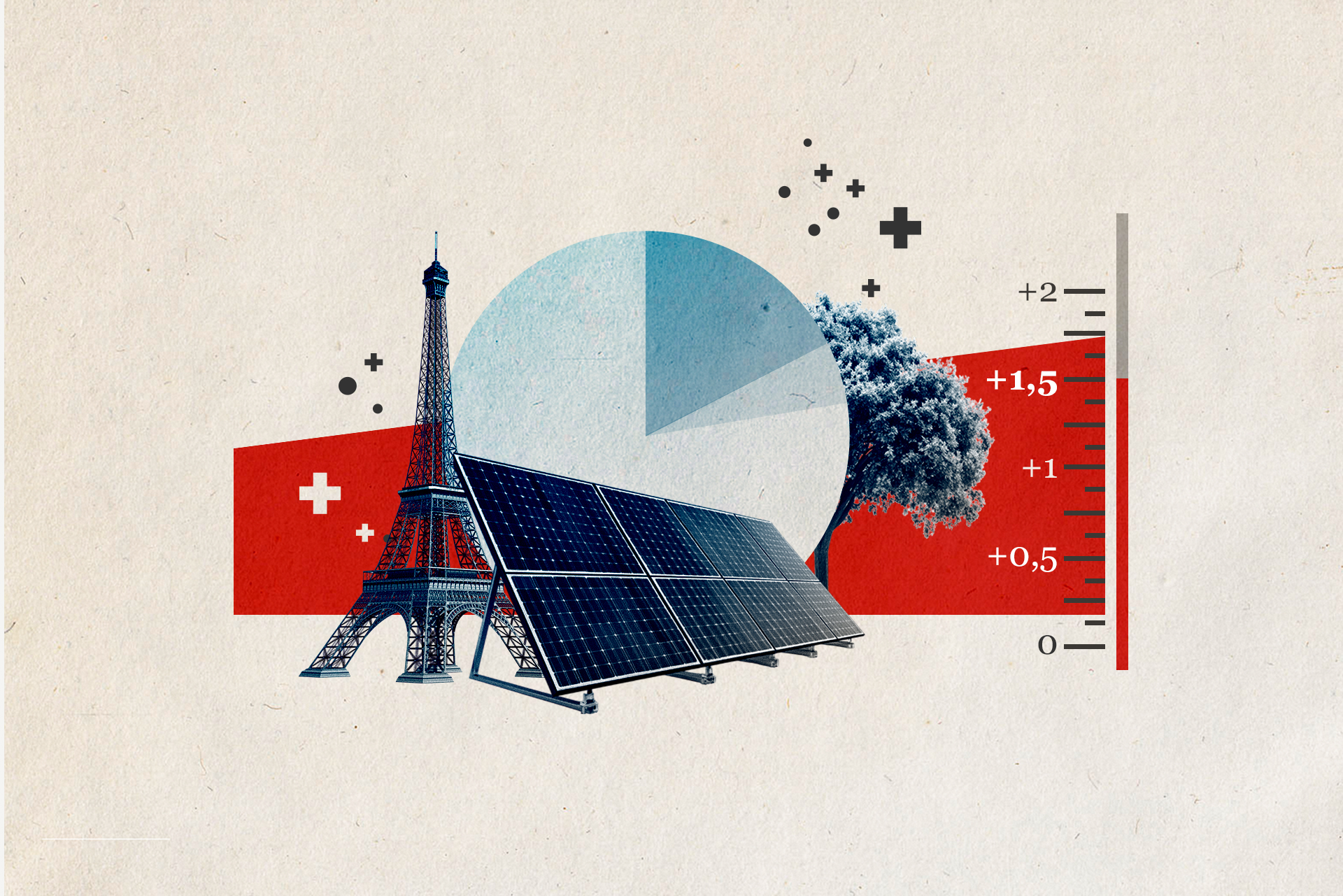
How a Swiss NGO teaches humanitarian law to Syrian rebels
With 300,000 dead in five years, millions of displaced and refugees, the war in Syria seems the ultimate symbol of human rights violations, the place most foreign to humanitarian law. But Swiss NGO Geneva Call refuses to give up, continuing to work in this controversial field.
Geneva CallExternal link, which has been present in Syria since 2012, promotes respect of international humanitarian norms by non-state armed actors in conflict. On September 19 it plans to relaunch its audio-visual and internet campaign on humanitarian law, Fighters not killers, coinciding with the presentation at the UN of a new Syria reportExternal link by an independent international commission of inquiry.

In Syria, however, selecting the armed groups is not easy. The main criteria are that working with them could have an impact on their behaviour, followed by the accessibility of the terrain. Geneva Call works mainly with Sunni factions of the Free Syrian Army (FSA), which is a coalition of armed groups affiliated to the Syrian opposition, and the Islamic Front, which is composed of moderate Islamists and Salafists, but also with Kurdish armed groups in both the north and south of Syria. Contact with these groups is either established directly, as in Iraqi Kurdistan, or through a local partner to guide fighters opposing the Assad regime on questions of humanitarian law. Then, it must be decided what types of actions will have most impact. A local partner made possible in 2015 alone the trainingExternal link of 300 fighters of the FSA and Islam Army in rules of war, but also civilians such as members of the Free Syrian Lawyers association.
Once on the ground, how can one convince these armed groups to respect norms that they see as far from the reality of war? The Swiss NGO thinks it has found part of the solution by concentrating on Islamic law, because “we cannot use norms that appear imposed. There are many similarities between Islamic law and the norms of humanitarian law”, says head of communication Nicolas Sion. The NGO also recognizes that even if these fighters could be indicted by an international court, that is not the most persuasive argument for these rebel groups. But they are well aware of the need to respect these norms to preserve their reputation as they conduct the war and “they think about their long-term interests”. This aspect is strengthened if a group signs a “Deed of Commitment” under Geneva Call’s auspices, which commits them publicly, even if “the aim is not always to get them to sign a Deed of Commitment, especially if the group is not structured, then it is not efficient”. In that case, Geneva Call may rather try to get them to adopt a code of conduct or modify their internal rules.
However, the rapid increase of groups on the ground with small military contingents means they are not always identifiable, and it can take several months of discussion to get a Deed of Commitment signed. “It has happened that a group dissolved itself a few months after signing,” says the head of communication. “Today is not always the same as tomorrow in the Syrian context.” Hence the utility of the audio-visual campaign Fighters not Killers, which explains the norms of humanitarian law in a simple way that can reach fighters on the ground more widely.
Once a Deed of Commitment has been signed, it has to be monitored. When Geneva Call obtained the demobilization of more than 200 Kurdish child soldiers, the NGO went to Qamishli in 2015External link to see if the Deed was being respected, investigate allegations of breaches and research supplementary measures to be taken. A monitoring committee was also set up to help ensure constant dialogue with the groups. Geneva Call also gets cooperation from local NGOs and journalists who report information that is useful for monitoring adherence to commitments.
Lack of security remains an obstacle to access to the armed groups, so it is sometimes preferable to meet them outside. For example, about a dozen commanders of the Free Syrian Army received trainingExternal link in Geneva in December 2015 delivered by Geneva Call jurists. Nevertheless, the main thing is to ensure follow-up so as to make sure there is positive impact on the ground, which for the moment does not seem to be visible enough.
Geneva Call is funded by various governments (including Australia, Sweden and Liechtenstein) and institutional donors. The NGO works in various different placesExternal link (Lebanon, Yemen, Niger, Colombia and so on), where it tries to approach the biggest possible number of fighters, without any discrimination or political considerations.
This article first appeared on JusticeInfo.netExternal link. The views expressed in this article are solely those of the author, and do not necessarily reflect the views of swissinfo.ch.
Opinion series
swissinfo.ch publishes op-ed articles by contributors writing on a wide range of topics – Swiss issues or those that impact Switzerland. The selection of articles presents a diversity of opinions designed to enrich the debate on the issues discussed.

In compliance with the JTI standards
More: SWI swissinfo.ch certified by the Journalism Trust Initiative





























You can find an overview of ongoing debates with our journalists here . Please join us!
If you want to start a conversation about a topic raised in this article or want to report factual errors, email us at english@swissinfo.ch.